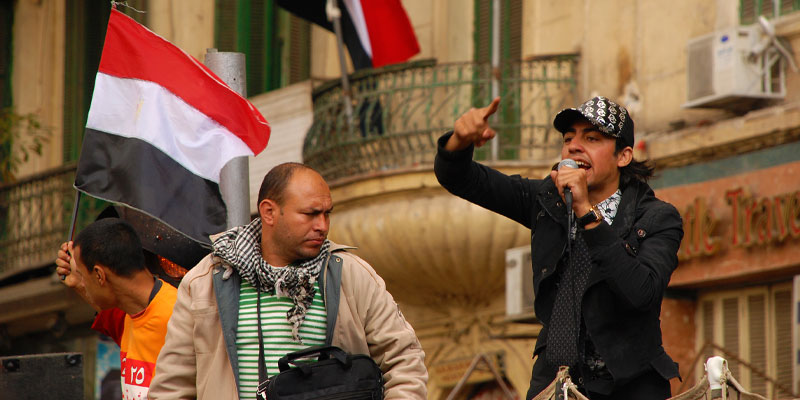The protection of human rights defenders at risk
-
Case study
- Health and Wellbeing
- Justice and Equality
Our world-leading research is working at the heart of policy and practice surrounding the protection of human rights defenders.

The issue
Now a global trend, the closing of civic space has been described by the United Nations as an existential threat to freedom and democracy and by the World Economic Forum as a major global risk.
These laws and practices that restrict civil society's ability to operate often target human rights defenders (HRDs) and puts them at risk of hyper-regulation, stigmatisation, prosecution and attacks.
The research
Our research investigated the role of of civil society in protection. We found that HRDs have developed a wide range of effective and context-specific protection strategies, including temporary (domestic and international) relocation and networks of protection.
These tactics often exist independent of state mechanisms which are frequently ineffective due to either state complicity in the targeting of defenders or the inability of the state to effectively protect HRDs against non-state threats.
We also looked into the mental wellbeing of HRDs, often ignored by defenders and in developing protection strategies.
We found that challenges to mental health are significantly elevated in communities of defenders at risk, even above those recorded in comparable traumatised populations.
Many defenders resist traditional (Western) approaches to mental health and mental health professionals are poorly equipped to assist defenders.
As much as the closing of civic space, threats to wellbeing pose an existential challenge to the continuation of human rights activities by defenders.
The outcome
A key and distinctive feature of the research has been ongoing collaboration with individuals and organisations who are working at the heart of policy and practice around the protection HRDs.
Collaboration has been strategic with the aim of working with and influencing those who are best placed to use research and act in ways that have significant practical effects on the protection of HRDs.
Our research has been the foundation of major reports by the UN Special Rapporteur in their thematic reports to the UN General Assembly and the Human Rights Council.
The reports have had impact within the UN mechanisms, debated by states in the General Assembly and Human Rights Council. They have also been used by policymakers, civil society actors and diplomats to reaffirm standards of protection, highlight trends in the risks defenders face and develop policies and practices on protection.
Our findings have also had influence on changing and developing practice in relocation initiatives and in the establishment of new relocation initiatives, building temporary international relocation initiatives.
The work has prompted state officials, civil society groups, human rights defenders and funders to resource and implement self- and collective care practices for human rights defenders. Practitioners and human rights defenders in different countries now recognise and respond more comprehensively to the mental and emotional needs of human rights defenders including by changing work cultures in organisations and providing staff with access to professional support and respite programmes.
At an individual level, HRDs who have been on the Protective Fellowship Scheme have drawn on CAHR’s research-based training to implement security management plans for themselves and their organisations in their home countries. In several instances these have become new programmes of protection in countries such as Brazil, Kenya and Egypt.

Martin Jones
Martin’s research interests include both the situation of human rights defenders and refugee law and policy.

Alice Nah
Dr Nah's research interests primarily focuses on security and protection of human rights defenders at risk and migration and asylum in Asia.
